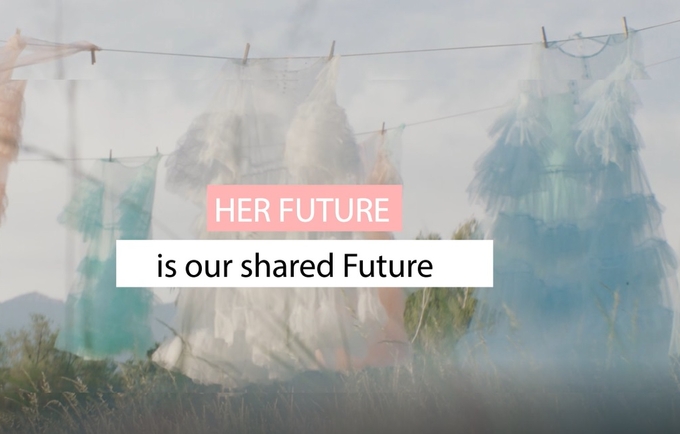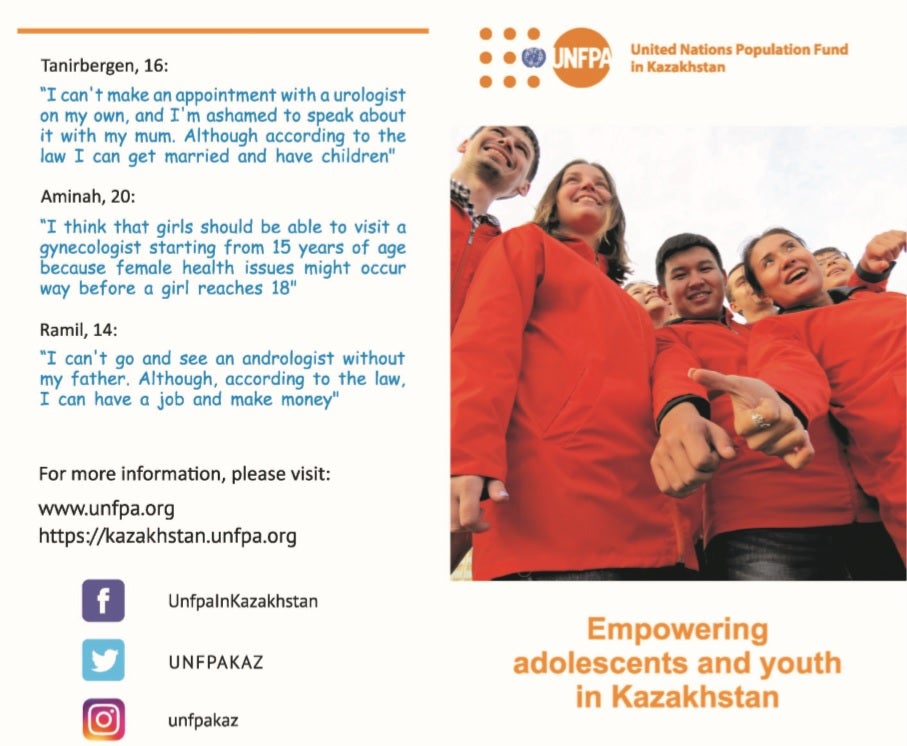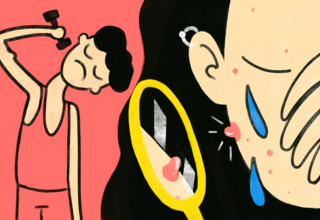Astana, Kazakhstan 17 August 2018 – UNFPA has released a short video with a hashtag #HerFuture about early marriages in Kazakhstan. The video was made by “Tihiy svet” Documentary Film Atelier and is based on the video by Kazakhstan’s singer Kaliya “Қыз тағдыры» (Her Future). The Steppe website is a partner in this project.
To watch the video in the three languages (Kazakh, Russian and English), please follow these links:
#ҚызТағдыры https://www.youtube.com/watch?v=aEN0h6p-IlA
#ЕеБудущее https://www.youtube.com/watch?v=nkBc71iVO04
#HerFuture https://www.youtube.com/watch?v=82mcPWUsvNI
In the whole world one out of every five girls gets married or is married before she reaches 18. Early marriages jeopardize the life and health of girls and limit their life potential in the future. Girls in forced marriages often become pregnant when they are adolescents, which increases the likelihood of complications during pregnancies and labour because their bodies are not ready for childbirth. These complications often lead to death among adolescent girls.
Age of consent for marriage is 18 in Kazakhstan, and it is the same for women and for men. Only in exceptional cases and upon a decision by the local executive authorities can this age be reduced by a maximum of two years if there is an admissible excuse, such as pregnancy or a common child.
Preventing early marriages is a comprehensive job. It requires joint and coordinated efforts by the health, education, law-enforcement and many other government and non-government facilities.
With UNFPA’s support Kazakhstan is working to strengthen youth-friendly health service centres. The goal of this work is to improve the quality of medical services provided to young people on reproductive health, and help adolescents in difficult life situations. UNFPA has also created and continued to work with a Y-PEER network (Youth Peer Education Network), in which 200 young people were trained to competently provide information to teenage peers about safe sexual behaviour on a “peer to peer” principle.
Recognizing that the problem of early marriages is, among others, related to access to reproductive health education, UNFPA developed a valeology course with an expanded element on sexual and reproductive health. The course has been tested in the Aktobe, East-Kazakhstan, Kyzylorda, South Kazakhstan and Mangystau regions.
“Early marriages is a gender phenomenon which has a different impact on girls and boys. As minors, child-spouses are deemed unable to give a free and full consent to a marriage. This means that child marriages are a violation of human and child rights. By entering a marriage, girls often have to drop out of school to work or do household chores, which limits their opportunities to fulfill their life potential. As a result, they often fall into a vicious cycle of poverty. If they don’t have good education, they are unlikely to get well-paid jobs, which leads to poverty and dependence on a partner, making girls more vulnerable to domestic violence. Besides, children taught on the example of their parents are likely to copy the same behaviour model in their future family life,” said Programme Coordinator at UNFPA Kazakhstan Gaziza Moldakulova.
The song «Қыз тағдыры» («Her Future”) by singer and UNFPA voice Kaliya (Akmarzhan Kusherbayeva) served as the basis for the video.
“If teenagers, parents and their close ones hear my song and think about this problem at least for a second, and realize that this social issue exists, then the goal is achieved. I will raise this problem in music, someone else will do so in film or in literature. By doing so we will launch positive processes in the society,” said Akmarzhan Kusherbayeva.
For more information please contact UNFPA communications specialist Dina Teltayeva tel.: +7 7172 696538; +77017654010
teltayeva@unfpa.org




